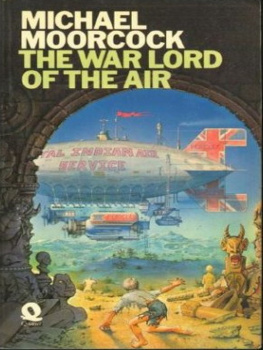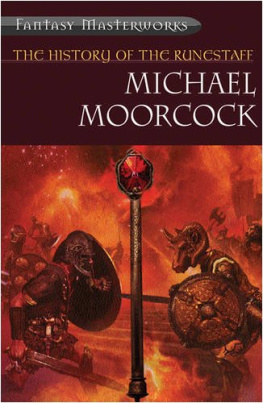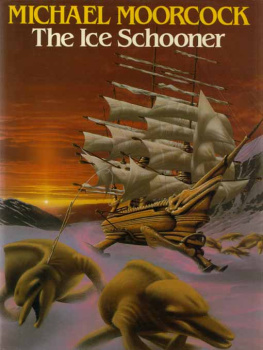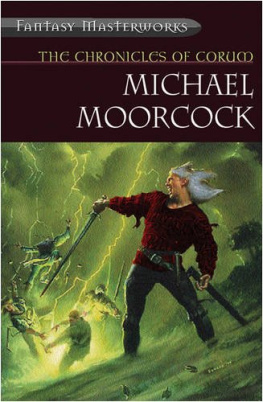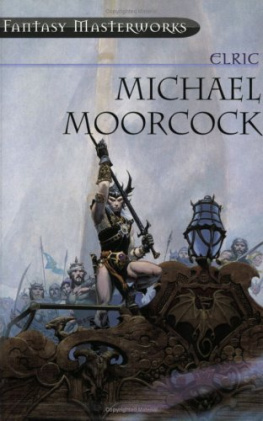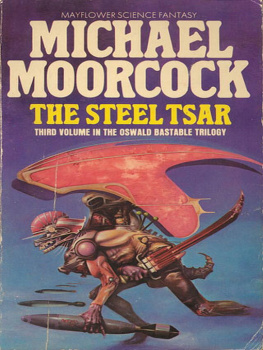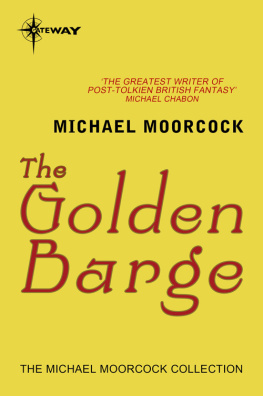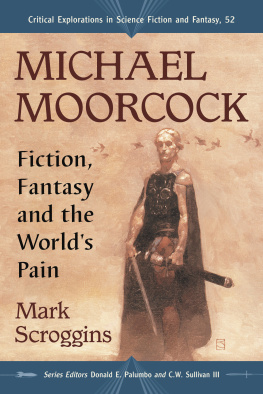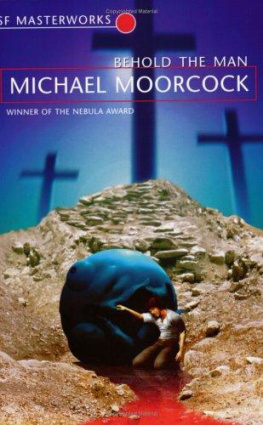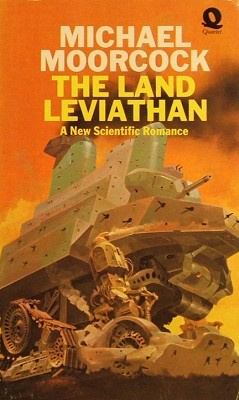Michael Moorcock - The Warlord of the Air
Here you can read online Michael Moorcock - The Warlord of the Air full text of the book (entire story) in english for free. Download pdf and epub, get meaning, cover and reviews about this ebook. year: 1989, publisher: Grafton, genre: Art. Description of the work, (preface) as well as reviews are available. Best literature library LitArk.com created for fans of good reading and offers a wide selection of genres:
Romance novel
Science fiction
Adventure
Detective
Science
History
Home and family
Prose
Art
Politics
Computer
Non-fiction
Religion
Business
Children
Humor
Choose a favorite category and find really read worthwhile books. Enjoy immersion in the world of imagination, feel the emotions of the characters or learn something new for yourself, make an fascinating discovery.
- Book:The Warlord of the Air
- Author:
- Publisher:Grafton
- Genre:
- Year:1989
- Rating:4 / 5
- Favourites:Add to favourites
- Your mark:
- 80
- 1
- 2
- 3
- 4
- 5
The Warlord of the Air: summary, description and annotation
We offer to read an annotation, description, summary or preface (depends on what the author of the book "The Warlord of the Air" wrote himself). If you haven't found the necessary information about the book — write in the comments, we will try to find it.
The Warlord of the Air — read online for free the complete book (whole text) full work
Below is the text of the book, divided by pages. System saving the place of the last page read, allows you to conveniently read the book "The Warlord of the Air" online for free, without having to search again every time where you left off. Put a bookmark, and you can go to the page where you finished reading at any time.
Font size:
Interval:
Bookmark:
The Warlord Of
The Air
Oswald Bastable Trilogy
Book I
Michael Moorcock
Content
HOW AN ENGLISH ARMY OFFICER ENTERED THE WORLD OF THE FUTURE AND WHAT HE SAW THERE.
IN THE SPRING of 1903, on the advice of my physician, I had occasion to visit that remote and beautiful fragment of land in the middle of the Indian Ocean which I shall call RoweIsland. I had been overworking and had contracted what the quacks now like to term exhaustion or even nervous debility. In other words I was completely whacked out and needed a rest a long way away from anywhere. I had a small interest in the mining company which is the sole industry of the island (unless you count Religion!) and I knew that its climate was ideal, as was its locationone of the healthiest places in the world and fifteen hundred miles from any form of civilisation. So I purchased my ticket, packed my boxes, bade farewell to my nearest and dearest, and boarded the liner which would take me to Jakarta. From Jakarta, after a pleasant and uneventful voyage, I took one of the company boats to RoweIsland. I had man aged the journey in less than a month.
Rowe Island has no business to be where it is. There is nothing near it. There is nothing to indicate that it is there. You come upon it suddenly, rising out of the water like the tip of some vast underwater mountain (which, in fact, it is). It is a great wedge of volcanic rock surrounded by a shimmering sea which resembles burnished metal when it is still or boiling silver and molten steel when it is testy. The rock is about twelve miles long by five miles across and is thickly wooded in places, bare and severe in other parts. Everything goes uphill until it reaches the top and then, on the other side of the hill, the rock simply falls away, down and down into the sea a thousand feet below.
Built around the harbour is a largish town which, as you approach it, resembles nothing so much as a prosperous Devon fishing villageuntil you see the Malay and Chinese buildings behind the facades of the hotels and offices which line the quayside. There is room in the harbour for several good sized steamers and a num ber of sailing vessels, principally native dhows and junks which are used for fishing. Further up the hill you can see the workings of the mines which employ the greatest part of the population which is Malay and Chinese labourers and their wives and families. Prominent on the quayside are the warehouses and offices of the Welland Rock Phosphate Mining Company and the great white and gold facade of the Royal Habour Hotel of which the proprietor is one Minheer Olmeijer, a Dutchman from Surabaya. There are also an almost ungodly number of missions, Buddhist temples, Malay mosques and shrines of more, mysterious origin. There are several less ornate hotels than Olmeijers, there are general stores, sheds and buildings which serve the tiny railway which brings the ore down from the mountain and along the quayside. There are three hospitals, two of which are for natives only. I say natives in the loose sense. There were no natives of any sort before the island was set tled thirty years ago by the people who founded the Wel land firm; all labour was brought from the Peninsula, mainly from Singapore. On a hill to the south of the harbour, standing rather aloof from the town and dominating it, is the residence of the Official Representative, Brigadier Bland, together with the barracks which houses the small garrison of native police under the command of a very upright servant of the Empire, Lieutenant Allsop. Over this spick and span collection of whitewashed stucco flies a proud Union Jack, symbol of protection and justice to all who dwell on the island.
Unless you are fond of paying an endless succession of social calls on the other English people, most of whom can talk only of mining or of missions, there is not a great deal to do on Rowe Island. There is an amateur dramatic society which puts on a play at the Official Representatives residence every Christmas, there is a club of sorts where one may play billiards if invited by the oldest members (I was invited once but played rather badly). The local newspapers from Singapore, Sarawak or Sydney are almost always at least a fortnight old, when you can find them, the Times is a month to six weeks old and the illustrated weeklies and monthly journals from home can be anything up to six months old by the time you see them. This sparsity of up-to-date news is, of course, a very good thing for a man recovering from exhaustion. It is hard to get hot under the collar about a war which has been over a month or two before you read about it or a stock market tremor which has resolved itself one way or the other by the previous week. You are forced to relax. After all, there is nothing you can do to alter the course of what has become history. But it is when you have begun to recover your energy, both mental and physical, that you begin to realise how bored you areand within two months this realisation had struck me most forcibly. I began to nurse a rather evil hope that something would happen on RoweIslandan explosion in the mine, an earthquake, or perhaps even a native uprising.
In this frame of mind I took to haunting the harbour, watching the ships loading and unloading, with long lines of coolies carrying sacks of corn and rice away from the quayside or guiding the trucks of phosphate up the gangplanks to dump them in the empty holds. I was surprised to see so many women doing work which in England few would have thought women could do! Some of these women were quite young and some were almost beautiful. The noise was almost deafening when a ship or several ships were in port. Naked brown and yellow bodies milled everywhere, like so much churning mud, sweating in the intense heata heat relieved only by the breezes off the sea.
It was on one such day that I found myself down by the harbour, having had my lunch at Olmeijers hotel, where I was staying, watching a steamer ease her way towards the quay, blowing her whistle at the junks and dhows which teemed around her. Like so many of the ships which ply that part of the world, she was sturdy but unlovely to look upon. Her hull and superstructure were battered and needed painting and her crew, main ly laskars, seemed as if they would have been more at home on some Malay pirate ship. I saw the captain, an elderly Scot, cursing at them from his bridge and bellowing incoherently through a megaphone while a half-caste mate seemed to be performing some peculiar, private dance of his own amongst the seamen. The ship was the Maria Carlson bringing provisions and, I hoped, some mail. She berthed at last and I began to push my way through the coolies towards her, hoping she had brought me some letters and the journals which I had begged my brother to send me from London.
The mooring ropes were secured, the anchor dropped and the gangplanks lowered and then the half-caste mate, his cap on the back of his head, his jacket open, came springing down, howling at the coolies who gath ered there waving the scraps of paper they had received at the hiring office. As he howled he gathered up the papers and waved wildly at the ship, presumably issuing instructions. I hailed him with my cane.
Any mail? I called.
Mail? Mail? He offered me a look of hatred and contempt which I took for a negative reply to my ques tion. Then he rushed back up the gangplank and disappeared. I waited, however, in the hope of seeing the captain and confirming with him that there was, indeed, no mail. Then I saw a white man appear at the top of the gangplank, pausing and staring blankly around him as if he had not expected to find land on the other side of the rail at all. Someone gave him a shove from behind and he staggered down the bouncing plank, fell at the bottom and picked himself up in time to catch the small seabag which the mate threw to him from the ship.
Next pageFont size:
Interval:
Bookmark:
Similar books «The Warlord of the Air»
Look at similar books to The Warlord of the Air. We have selected literature similar in name and meaning in the hope of providing readers with more options to find new, interesting, not yet read works.
Discussion, reviews of the book The Warlord of the Air and just readers' own opinions. Leave your comments, write what you think about the work, its meaning or the main characters. Specify what exactly you liked and what you didn't like, and why you think so.

